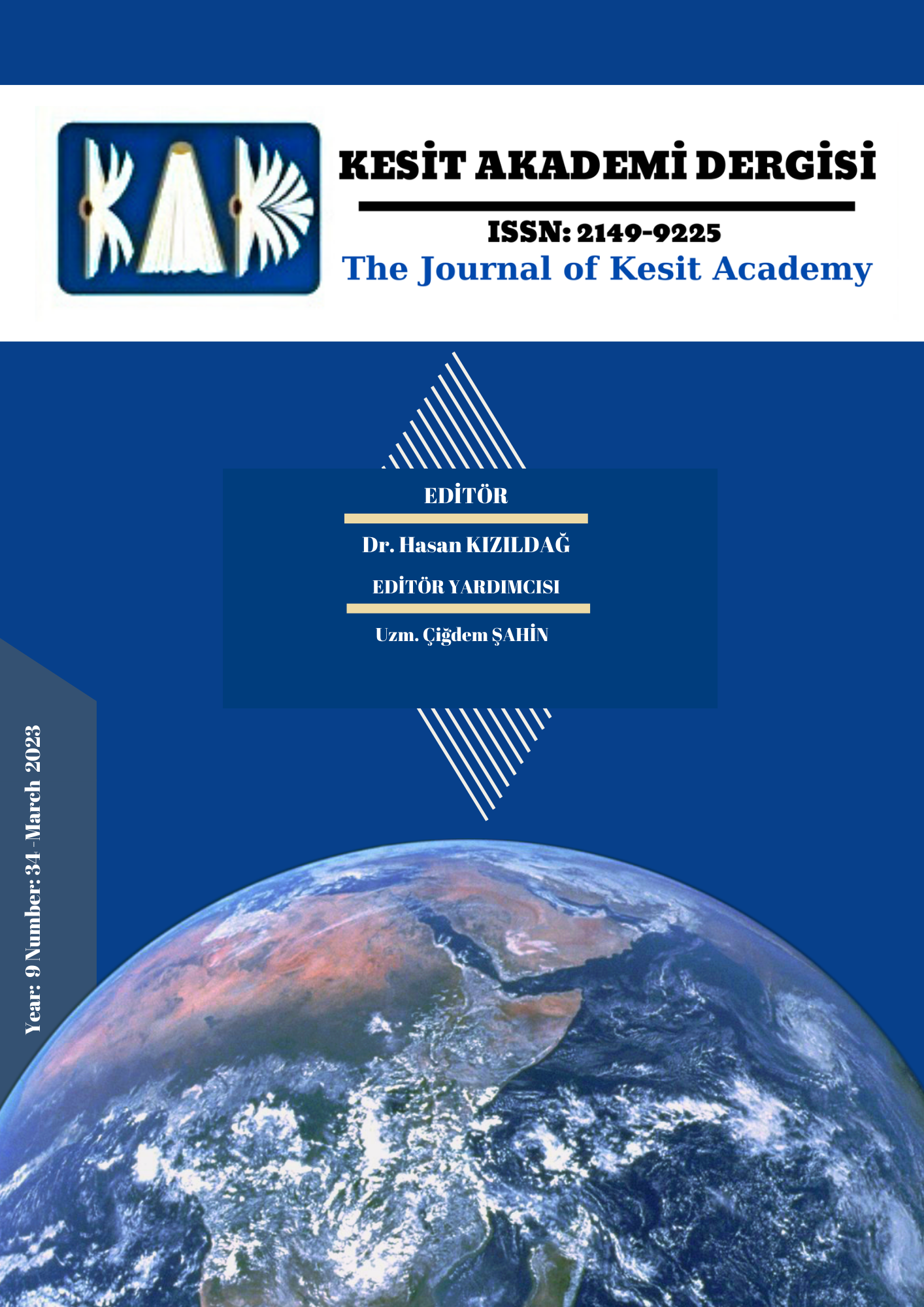Author :
Abstract
“Dijital göçmenlik” ve “Dijital yerlilik” kavramları Marc Prensky tarafından 2001 yılında literatüre kazandırılmış kavramlardır. Bu kavramlar özellikle ABD’de eğitimdeki düşüşün anlamlandırılması için kullanılmıştır. Prensky, Dijital Yerli olan öğrencilerin tüm yaşamlarının dijital dünyada geçtiğini belirtmektedir. Dolayısıyla bu dijital yaşamlarına göre de bir dil oluşturduklarını ifade etmiştir. Bu “Anadil” dijital göçmen olan öğretmenleri ve ebeveynleri tarafından anlaşılamamakta olduğunu ifade etmektedir. Eğitim dünyasındaki öğrenci davranışlarındaki değişimi anlamlandırmak için ortaya konulan bu kavramlar diğer toplumsal alanlarda da kullanılmaya başlanmıştır. Son zamanlarda çocukların teknolojiyle kurdukları ilişki hem eğitim kurumunda hem de aile kurumunda bir takım iletişim bozukluklarına neden olmaktadır. Prensky’nin deyimiyle “Dijital göçmen” ebeveynler çocuklarının oluşturdukları bu dile “dijital göçmen aksanlarıyla” yabancı kalmaktadırlar. Teknolojinin tüm nimetlerinden yararlanılarak oluşturulan animasyon filmleri de bu iletişim bozukluğuna bir bakış açısı sunmaktadır. Ailem Robotlara Karşı (The Mitchells vs. the Machines, 2021) filminde yönetmenler Michael Rianda ve Jeff Rowe, teknolojiyle sıkı bağlar kuran çocuklar ile teknolojiyle aralarında mesafe olan ebeveynlerinin ilişkisi üzerinden bir olay örgüsü sunmaktadır. Bu çalışmada, nitel içerik analizi yöntemiyle ele alınacak filmde “Dijital Göçmenlik”, “Dijital Yerlilik” kavramları bağlamında, teknolojik değişim ve ebeveyn-çocuk ilişkisinin geldiği durum tartışılacaktır. Bu kapsamda filmin ebeveynlere, “dijital göçmenlik” önerisinde bulunduğu bulgusu tartışılacaktır.
Keywords
Abstract
The concepts of “Digital Immigrants” and “Digital Natives” were introduced to the literature by Marc Prensky in 2001. These concepts especially have been used to make sense of the decline in education, in the USA. Prensky states that students who are Digital Natives spend their entire lives in the digital world. Therefore, he stated that they created a language according to their digital life. This “Mother Tongue” means that it cannot be understood by teachers and parents who are digital immigrants. These concepts, which were put forward to make sense of the change in student behavior in the world of education, have begun to be used in other social areas as well. Recently, children's relationship with technology has caused some communication disorders both in the educational institution and in the family institution. In Prensky's words, with their "digital immigrant accents", "Digital immigrant" parents remain unfamiliar with the language that their children have formed. Animated films created by utilizing all the technological opportunities also offer a perspective on this communication disorder. In The Mitchells vs. the Machines (2021) movie, directors Michael Rianda and Jeff Rowe present a plot through the relationship between children who have close bonds with technology and their parents who are distant from technology. In this study, the situation of technological change and parent-child relationship will be discussed in the context of the “Digital Immigrants” and “Digital Natives” concepts by using qualitative content analysis method. Within this framework, the finding that the film proposes "digital immigration" to parents will be discussed.
Recently, children's relationship with technology has caused some communication disorders both in the educational institution and in the family institution. In Prensky's words, with their "digital immigrant accents", "Digital immigrant" parents remain unfamiliar with the language that their children have formed.
Animated films created by utilizing all the technological opportunities also offer a perspective on this communication disorder. In The Mitchells vs. the Machines (2021) movie, directors Michael Rianda and Jeff Rowe present a plot through the relationship between children who have close bonds with technology and their parents who are distant from technology. In this study, the situation of technological change and parent-child relationship will be discussed in the context of the “Digital Immigrants” and “Digital Natives” concepts by using qualitative content analysis method. Within this framework, the finding that the film proposes "digital immigration" to parents will be discussed.





